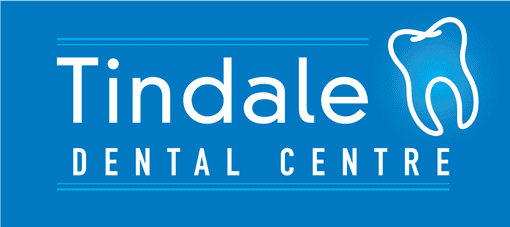
A broken tooth can be an unsettling experience, but it’s more common than you might think. While it may not always cause immediate pain, leaving a broken tooth untreated can lead to infections, decay, or even tooth loss. Seeking timely professional care is crucial to protect your oral health.
At Tindale Dental, we frequently treat patients with broken teeth. Understanding what causes this issue and how to manage it in the short term can make all the difference. Let’s explore the key steps you can take when faced with a broken tooth and how your dentist can help.
What causes a broken tooth?
Several factors can lead to a tooth breaking. Understanding these causes can help you avoid similar issues in the future:
- Biting down on hard objects: Foods like nuts, hard lollies, or even bones can cause teeth to crack or chip.
- Bruxism (teeth grinding): Grinding or clenching your teeth, especially while sleeping, can weaken the enamel and eventually lead to breaks.
- Accidents or injuries: Sports injuries or accidents involving facial trauma often result in broken teeth.
- Untreated cavities: Cavities weaken the tooth’s structure, making it more vulnerable to fractures.
Additional factors include:
- Sudden temperature changes: Exposing your teeth to hot and cold extremes, such as drinking hot tea and then eating ice cream, can cause cracks in weakened enamel.
- Poor oral hygiene: Inadequate brushing and flossing can lead to decay and weakened teeth, making them more susceptible to breaking.
- Chewing on non-food items: Biting down on items like pens, nails, or ice places unnecessary pressure on teeth, leading to potential fractures.
- Erosion from acidic foods or drinks: Consuming a diet high in acidic foods and beverages, such as soft drinks or citrus fruits, can erode enamel, leaving teeth more vulnerable to damage.
Steps to managing a broken tooth
If you suspect you’ve broken a tooth, it’s important to take the right steps to manage the situation until you can see your dentist. Follow these guidelines to minimise pain and avoid further damage:
- Contact your dentist immediately: Schedule an appointment with our friendly Tindale Dental team as soon as possible. The longer a broken tooth is left untreated, the greater the risk of infection or additional complications.
- Avoid chewing on the affected side: This will help prevent further damage and discomfort. If the tooth is sharp, cover it with dental wax or sugar-free gum to protect your mouth from cuts.
- Rinse your mouth with warm salt water: This helps keep the area clean and reduces the risk of infection. Simply dissolve half a teaspoon of salt in a cup of warm water and gently rinse.
- Use a cold compress if there’s swelling: If your face is swollen, applying a cold compress to the area can reduce inflammation and relieve discomfort.
- Over-the-counter pain relief: If the broken tooth is causing pain, over-the-counter medications like ibuprofen can help manage discomfort. Always follow the dosage instructions on the package.
How will a dentist fix a broken tooth?
The treatment for a broken tooth depends on the severity of the break. Your Penrith dentist will assess the damage and recommend one of the following solutions:
- Dental bonding: This treatment is used for minor chips or fractures. The dentist applies a tooth-coloured resin to the broken area, shaping and hardening it to restore the tooth’s appearance and function.
- Crowns: For larger breaks, a crown (or cap) may be placed over the tooth to protect and stabilise it. Crowns are commonly used for teeth that have suffered significant damage but still have a healthy root.
- Veneers: In cases where the damage is mostly aesthetic, a veneer may be placed on the front of the tooth to restore its appearance.
- Root canals: If the break exposes the tooth’s pulp (the soft inner tissue containing nerves and blood vessels), a root canal may be required to remove the damaged pulp and protect the tooth from further infection.
In some cases, if the damage is too severe, the tooth may need to be extracted and replaced with a dental implant or bridge. The best approach will depend on your specific situation, so it’s crucial to visit your dentist for an accurate diagnosis and treatment plan.
Why seek professional help
While a broken tooth might seem minor, ignoring it can lead to more serious problems. When not treated, it could lead to infections, tooth decay, or even the loss of the tooth itself. Prompt dental care ensures that any damage is assessed and treated before it worsens.
Our experienced team is ready to provide expert care for broken teeth, using the latest techniques to restore your smile. If you’re experiencing a broken tooth, don’t wait—contact us today at (02) 4722 6115 to schedule an appointment.
